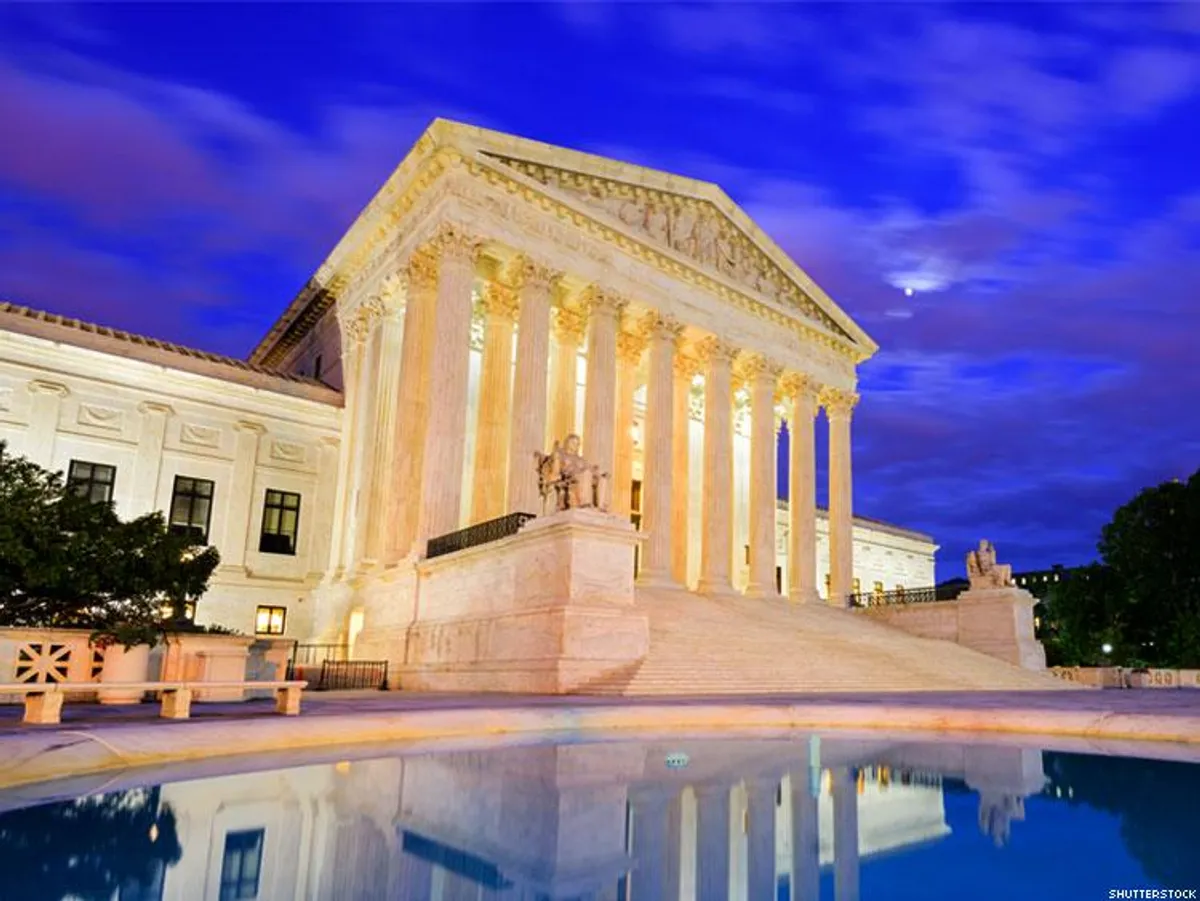Marriage Equality
Another LGBT Case Was Just Appealed to Supreme Court

This one involves birth certificates for children of same-sex couples.
February 15 2017 3:03 PM EST
February 15 2017 3:03 PM EST
trudestress
By continuing to use our site, you agree to our Private Policy and Terms of Use.

This one involves birth certificates for children of same-sex couples.
The U.S. Supreme Court, which is already set to hear a case on transgender student rights next month, may be hearing another LGBT rights case in the near future.
The National Center for Lesbian Rights and private attorneys have asked the high court to hear a case from Arkansas in which the state refused to automatically list both same-sex parents on birth certificates for children conceived through donor insemination, NCLR announced today. In 2015, a judge in Pulaski County found in favor of the couples who sued to have their names listed, but late last year the Arkansas Supreme Court overturned that ruling, so today the couples' lawyers petitioned the U.S. Supreme Court.
Whether the high court takes the case remains to be seen, but the lawyers say the Arkansas ruling violated the law as set down in Obergefell v. Hodges, the 2015 decision in which the U.S. Supreme Court ruled that same-sex couples must be treated the same as other couples in all aspects of marriage, including birth and death certificates.
"If allowed to stand, the Arkansas Supreme Court's refusal to follow Obergefell will invite officials in other states to do the same," NCLR legal director Shannon Minter said in a press release. "Rather than treating married same-sex couples and their children equally, as Obergefell requires, this ruling marginalizes these families and deprives them of the security that marriage is intended to provide. We are asking the Supreme Court to put a stop to this dangerous development and send a clear message to other states that Obergefell meant what it said."
Under Arkansas law, if a woman with a male spouse gives birth to a child conceived through donor insemination, her husband is automatically listed as a parent on the birth certificate. But birth mothers with female spouses were told they must obtain a court order to have both parents listed.
In the Arkansas Supreme Court ruling, Justice Josephine Linker Hart, writing for the court's majority, cited what she called "basic biological truths." "In the situation involving the female spouse of a biological mother, the female spouse does not have the same biological nexus to the child that the biological mother or the biological father has," Hart wrote. "It does not violate equal protection to acknowledge basic biological truths."
That did not sit well with the couples or their attorneys. "To permit states to pick and choose which marital protections married same-sex couples and their children may enjoy, based on the same rationales used to justify their exclusion from marriage in the past, would undermine this Court's precedent and return these families to a caste-like position of official stigma and disfavor," the petition to the high court argues.
NCLR is joined in the case by Arkansas attorney Cheryl Maples and the firm of Ropes & Gray. The petition was filed by Douglas Hallward-Driemeier, Supreme Court partner at Ropes & Gray, who argued Obergefell before the court.
"It is clear that Obergefell confers on married same-sex couples not just some, but all, rights given to married opposite-sex couples as a consequence of their marriage, including the important right to be legally recognized as parents to their children," Hallward-Driemeier said in the NCLR release.
The named plaintiffs in the case, Pavan v. Smith, are two couples: Marisa and Terrah Pavan, and Leigh and Jana Jacobs. A third couple was involved in the original case but is not part of the Supreme Court petition. The respondent is Nathaniel Smith, director of the Arkansas Department of Health, which is in charge of birth certificates.